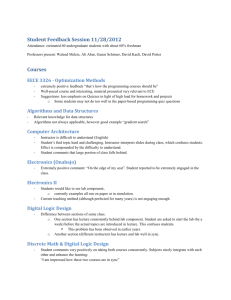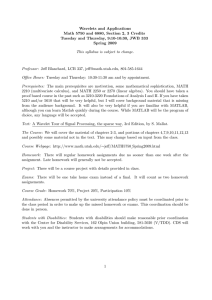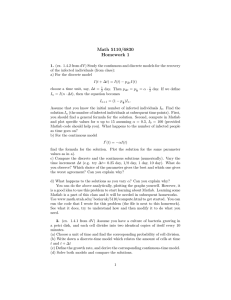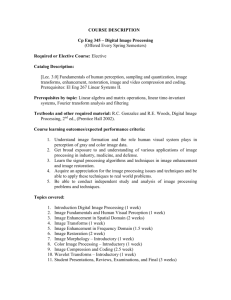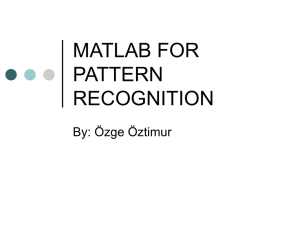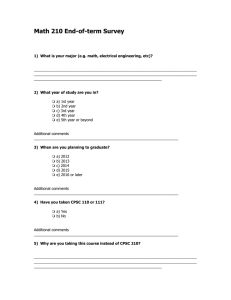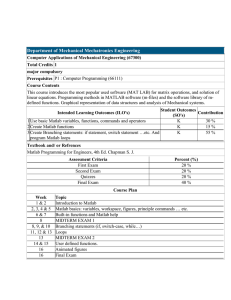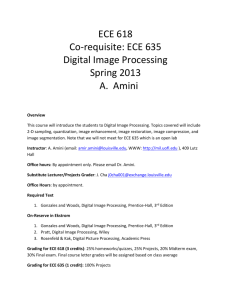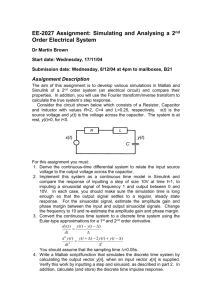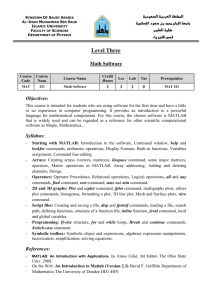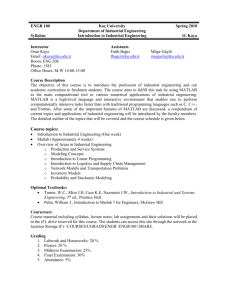ECE 445: Signal Processing
advertisement
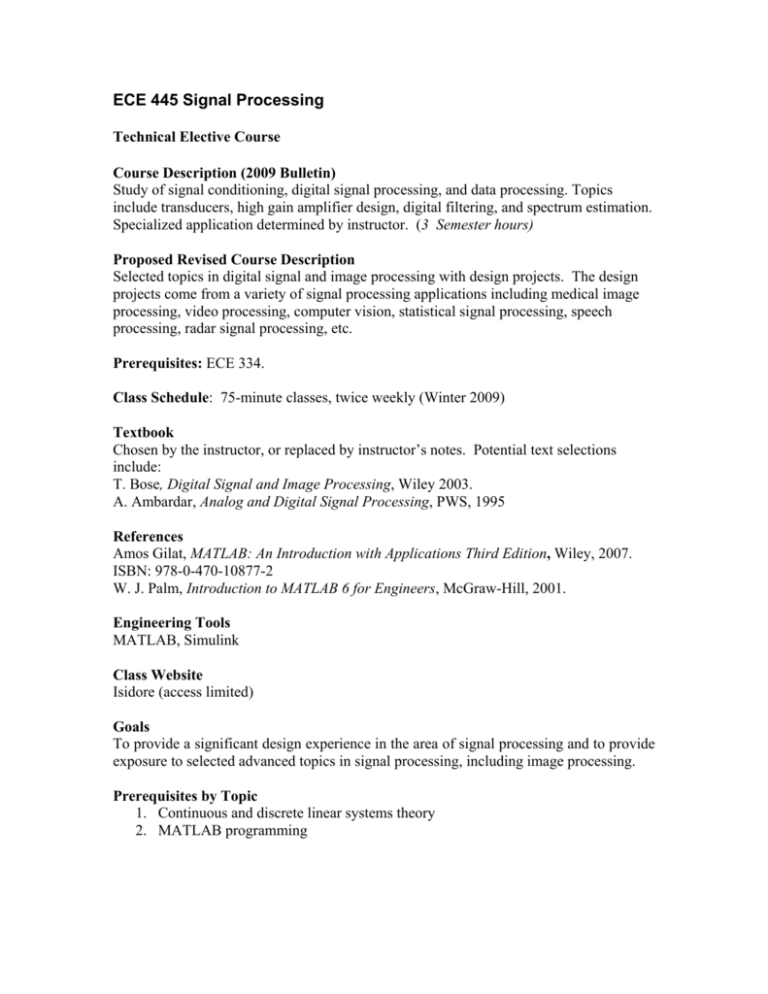
ECE 445 Signal Processing Technical Elective Course Course Description (2009 Bulletin) Study of signal conditioning, digital signal processing, and data processing. Topics include transducers, high gain amplifier design, digital filtering, and spectrum estimation. Specialized application determined by instructor. (3 Semester hours) Proposed Revised Course Description Selected topics in digital signal and image processing with design projects. The design projects come from a variety of signal processing applications including medical image processing, video processing, computer vision, statistical signal processing, speech processing, radar signal processing, etc. Prerequisites: ECE 334. Class Schedule: 75-minute classes, twice weekly (Winter 2009) Textbook Chosen by the instructor, or replaced by instructor’s notes. Potential text selections include: T. Bose, Digital Signal and Image Processing, Wiley 2003. A. Ambardar, Analog and Digital Signal Processing, PWS, 1995 References Amos Gilat, MATLAB: An Introduction with Applications Third Edition, Wiley, 2007. ISBN: 978-0-470-10877-2 W. J. Palm, Introduction to MATLAB 6 for Engineers, McGraw-Hill, 2001. Engineering Tools MATLAB, Simulink Class Website Isidore (access limited) Goals To provide a significant design experience in the area of signal processing and to provide exposure to selected advanced topics in signal processing, including image processing. Prerequisites by Topic 1. Continuous and discrete linear systems theory 2. MATLAB programming Topics This course covers selected advanced topics in signal processing. Topics build on the prior course work, and lead to a significant design experience, either as one major design project or several smaller design projects. Topics may include: 1. Review of continuous and discrete transforms 2. Digital filter design 3. Adaptive filters 4. Wiener filters 5. Digital image processing and applications 6. Digital beam forming techniques 7. Parameter estimation techniques 8. Spectrum estimation Assessment Projects (50%), Midterm Test (25 %) Final Exam (25%) (Winter 2009) Relevant ABET Program Outcomes a b c e i j k ability to apply knowledge of mathematics, science and engineering. ability to design and conduct experiments, as well as to analyze and interpret data. ability to design a system, component, or process to meet desired needs. ability to identify, formulate, and solve engineering problems. Our graduates will have a recognition of the need for, and an ability to engage in life-long learning. Our graduates will have knowledge of contemporary issues able to use the techniques, skills, and modern engineering tools Course Learning Outcomes 1. Students will understand continuous and discrete transforms as applied to signal processing (a, e) 2. Students will be able to design digital filters to meet frequency selectivity specifications (c, e) 3. Students will be able to do basic digital image processing using MATLAB (a, b, k) 4. Students will complete and document a major design experience in the area of signal processing (a, b, c, e, i, j, k) Prepared by: R. C. Hardie, Professor Date: 12 November 2009

